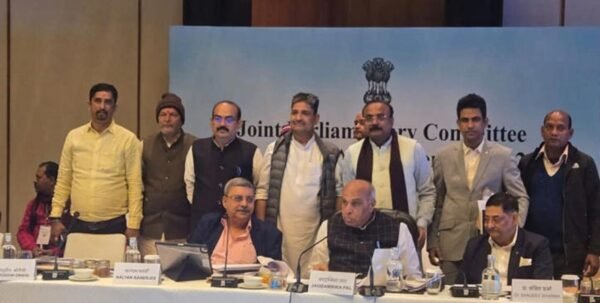The Joint Committee of Parliament (JCP) has formally adopted the amended Waqf (Amendment) Bill

The Joint Committee of Parliament (JCP) has formally adopted the amended Waqf (Amendment) Bill with a vote of 15-11, amidst strong opposition claims that the legislation is “unconstitutional” and infringes on the religious rights of Muslims. The committee’s chairperson, Jagdambika Pal, stated that the amendments aim to enhance transparency and effectiveness in managing Waqf properties, which are endowments made for charitable purposes in Islam.
Removal of ‘Waqf by User’ Clause: The bill eliminates this clause but ensures that there will be no retrospective reopening of cases for undisputed properties.
New Beneficiaries: For the first time, economically disadvantaged groups such as “pasmanda” Muslims, women, and orphans have been included as beneficiaries of Waqf.
Authority Changes: The authority to investigate disputes has shifted from district collectors to senior state government appointees, which critics argue could lead to increased governmental interference in religious matters.
Inclusion of Non-Muslims: The bill allows for non-Muslims to be included in Waqf boards, raising concerns among opposition members about potential impacts on minority rights and religious autonomy.
Opposition parties including Congress, DMK, TMC, AAP, and AIMIM have expressed strong discontent with the bill. They argue that it undermines the independence of the Waqf board and constitutes an overreach by the government into religious affairs. Some members have already submitted dissent notes, citing inadequate time to review the extensive 655-page report before voting. AIMIM leader Asaduddin Owaisi described the amendments as detrimental to the Waqf Board’s interests, while others warned about the implications for minority rights in India.
The report from the JCP is set to be presented to Lok Sabha Speaker Om Birla on January 30, 2025, with further legislative action anticipated during the upcoming Budget Session starting January 31.
